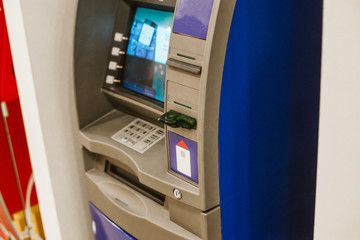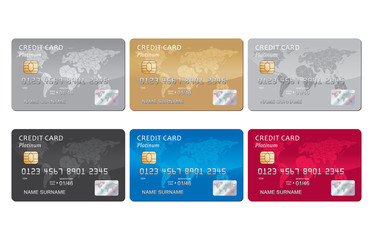

Credit Cards 101: Understanding the Basics at MSU
Navigating the world of credit cards can seem daunting, especially for those new to managing their finances. For students at Michigan State University (MSU) or anyone interested in learning about credit cards, understanding the fundamentals is crucial for financial well-being. This guide provides a comprehensive overview of credit cards, covering essential aspects from how they work to managing them effectively.
What is a Credit Card?
A credit card is a financial tool that allows you to borrow money up to a certain limit to make purchases or withdraw cash. Unlike debit cards, which draw funds directly from your bank account, credit cards provide a line of credit that you repay later. They come with various features and benefits but also require careful management to avoid debt and maintain a healthy credit score.
1. How Credit Cards Work
When you use a credit card, you are borrowing money from the credit card issuer, which is typically a bank or financial institution. The issuer sets a credit limit, which is the maximum amount you can borrow. Each time you make a purchase or withdraw cash, the amount is deducted from your available credit. At the end of the billing cycle, you receive a statement showing your total balance, minimum payment due, and payment due date.
2. Types of Credit Cards
There are several types of credit cards, each designed to meet different financial needs:
- Standard Credit Cards: These are basic cards with a set credit limit and interest rate. They are suitable for everyday purchases and building credit.
- Rewards Credit Cards: These cards offer points, cashback, or other rewards for every purchase. They are ideal for those who want to earn benefits from their spending.
- Secured Credit Cards: Designed for individuals with limited or poor credit history, secured cards require a cash deposit as collateral. They are useful for rebuilding credit.
- Student Credit Cards: Tailored for students, these cards typically have lower credit limits and fewer rewards but help young adults start building their credit history.
Applying for a Credit Card
Before applying for a credit card, it’s essential to evaluate your financial situation and understand your credit needs. Here’s a step-by-step guide to applying for a credit card:
1. Check Your Credit Score
Your credit score plays a significant role in determining whether you’ll be approved for a credit card and what terms you’ll receive. Obtain a free credit report and review your score to understand your creditworthiness.
2. Choose the Right Card
Based on your financial goals and credit history, select a card that best fits your needs. Compare different credit cards, looking at factors such as interest rates, rewards programs, fees, and credit limits.
3. Complete the Application
You can apply for a credit card online or in-person. Provide necessary information such as your income, employment status, and Social Security number. The issuer will review your application and credit history before making a decision.
4. Understand the Terms
Before accepting a credit card offer, read and understand the terms and conditions. Pay attention to the annual percentage rate (APR), fees, and any rewards or benefits associated with the card.
Managing Your Credit Card
Effective credit card management is key to maintaining a healthy credit score and avoiding debt. Here are some tips for managing your credit card responsibly:
1. Pay Your Bill on Time
One of the most important aspects of credit card management is making timely payments. Set up reminders or automatic payments to ensure you never miss a due date. Late payments can lead to fees and negatively impact your credit score.
2. Pay More Than the Minimum
While it’s essential to make at least the minimum payment, paying more than the minimum helps reduce your balance faster and minimizes interest charges. Aim to pay off your balance in full each month to avoid accruing interest.
3. Monitor Your Spending
Keep track of your purchases and monitor your credit card statements regularly. Many credit card issuers offer mobile apps that allow you to view transactions and manage your account on the go.
4. Avoid Maxing Out Your Credit Limit
Using too much of your available credit can hurt your credit score. Aim to keep your credit utilization ratio (the amount of credit you’re using compared to your total limit) below 30%.
5. Use Rewards Wisely
If you have a rewards credit card, make the most of your rewards by using the card for purchases that earn the most points or cashback. Redeem your rewards regularly to maximize their value.
Common Credit Card Fees
Credit cards come with various fees that can affect your finances. Understanding these fees can help you avoid unnecessary costs:
1. Annual Fees
Some credit cards charge an annual fee for the privilege of using the card. This fee can range from a nominal amount to several hundred dollars. Consider whether the benefits of the card outweigh the cost.
2. Late Payment Fees
If you miss a payment or make a payment after the due date, you may incur a late payment fee. This fee can be substantial and may also result in a higher interest rate.
3. Foreign Transaction Fees
If you use your credit card for purchases abroad or online from international merchants, you may be charged a foreign transaction fee. This fee is typically a percentage of the purchase amount.
4. Cash Advance Fees
Withdrawing cash using your credit card is known as a cash advance, and it often comes with high fees and interest rates. Avoid using your credit card for cash advances unless absolutely necessary.
Building Credit with a Credit Card
Using a credit card responsibly can help you build and maintain a good credit history. Here are some strategies for building credit with your credit card:
1. Make Timely Payments
As mentioned earlier, making payments on time is crucial for maintaining a positive credit history. Consistent, timely payments show creditors that you are a responsible borrower.
2. Keep Your Balance Low
Maintaining a low balance relative to your credit limit helps improve your credit utilization ratio and, in turn, your credit score. Avoid carrying a large balance from month to month.
3. Avoid Opening Multiple Accounts
While having multiple credit accounts can be beneficial, opening too many accounts in a short period can negatively impact your credit score. Apply for new credit cards only when necessary.
4. Regularly Review Your Credit Report
Check your credit report regularly for any errors or discrepancies. If you find mistakes, report them to the credit bureaus to have them corrected.
Conclusion
Understanding credit cards is essential for managing your finances effectively. By learning how credit cards work, choosing the right card, and managing it responsibly, you can make the most of this financial tool while building a positive credit history. For MSU students and anyone new to credit cards, this guide provides a solid foundation to help you navigate the complexities of credit and make informed financial decisions.
FAQs
1. What is the difference between a credit card and a debit card?
A credit card allows you to borrow money up to a certain limit and repay it later, while a debit card draws funds directly from your bank account. Credit cards typically offer more benefits and rewards but require careful management to avoid debt.
2. How do I choose the right credit card for me?
Consider your financial goals, credit history, and spending habits when choosing a credit card. Compare features such as interest rates, rewards programs, and fees to find a card that best fits your needs.
3. What should I do if I miss a credit card payment?
If you miss a payment, contact your credit card issuer as soon as possible. Make the payment as soon as you can and try to avoid missing payments in the future. Set up reminders or automatic payments to help manage your payments.
4. How can I improve my credit score with a credit card?
To improve your credit score, make timely payments, keep your balance low, and avoid opening too many new accounts. Regularly review your credit report and correct any errors you find.
5. Are there any fees associated with credit cards?
Yes, credit cards can come with various fees, including annual fees, late payment fees, foreign transaction fees, and cash advance fees. Be aware of these fees and try to avoid them by managing your card responsibly.
6. What is a credit utilization ratio, and why is it important?
The credit utilization ratio is the percentage of your available credit that you are using. It is important because it affects your credit score. Keeping this ratio below 30% helps maintain a good credit score.
7. Can I use a credit card while traveling internationally?
Yes, you can use a credit card internationally, but be aware of any foreign transaction fees that may apply. Inform your credit card issuer of your travel plans to avoid any issues with your card while abroad.







